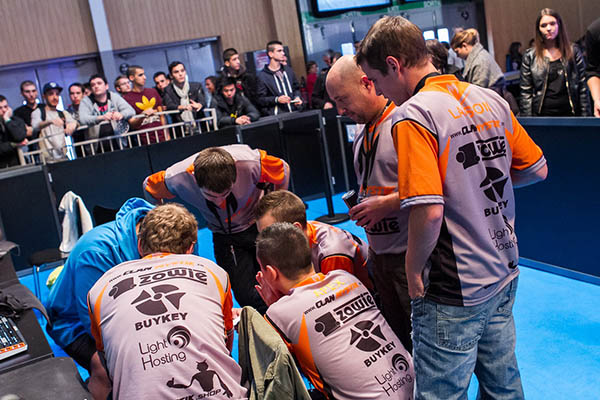Running a tournament means running into issues. Most of the ones related to rules are covered by a ruleset. But is that enough?
We’ve seen some controversy lately on how to handle an issue.
During the RNG CS:GO semi finals between teams Luminosity (Brazil) and Liquid (USA), a photographer accidentally unplugged a computer from one of the Luminosity players. Score was then tied 11-11 and the round was still featuring 4 players on each side. The American proceeded on winning the round and eventually the match, which caused much controversy.

Luminosity complained to the admin that the round should be restarted.
The admin told Luminosity that is was Team Liquid’s choice to reset the round or not.
The community flamed the admins for putting responsabilities on the players’ shoulders.
Liquid argued that they followed the rules, stating that if the round has begun and events have occurred, it has to be played until the end.
Luminosity countered with the fact that this rule applies for hardware or Internet failure, but not for human failure external to the team.
Tournament’s head said that no team was to blame, neither its admins.
It was a mess.
This is neither the first nor the last time an issue will cause debate among players, admins and the audience alike. We all remember the infamous “Fnatic boost” during the Dreamhack Winter 2014.
Even though it all went to very specific and exceptional conditions, this issue put the spotlight on how tournament organizers have to think, design stick to their rulebook.
Here are our tips to handle those situations:
1. Have an exhaustive, thoroughly prepared rulebook
Complete rules covering even the most exotic situations are available all around the web. Find your inspiration from the major events and get help from experimented tournament admins.
2. Make your rules visible to everyone
We’ve seen too many times players complaining about a ruling they were not aware of in the first place. Make sure your rules are on your website, mailed to the participants and double check your admins know them by heart.
Here’s an example of a tournament displaying the rules straight from our widget. How smart is that?
3. You got this
Last but not least: you’re the one in charge. It doesn’t mean you’ll come up with the best decision (we hope so), but it means it is your responsibility. Situation can get very tense if you give everyone a voice. Hear the arguments from everyone, but don’t ever share the decision process, or your tournament’s authority will suffer greatly. And in a dire situation, you’ll really want to keep the lead.
TL:DR: have both solid rulebook and decision making ruleset